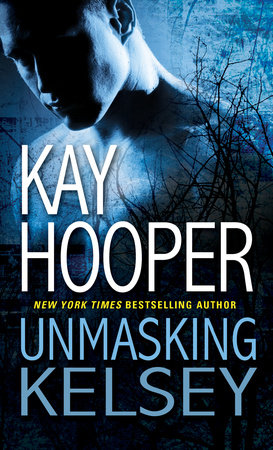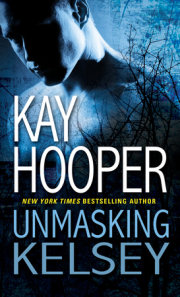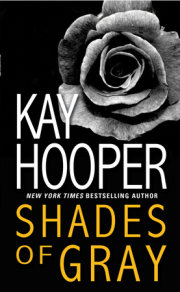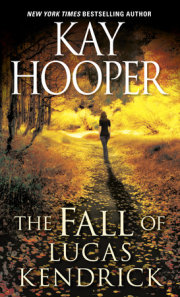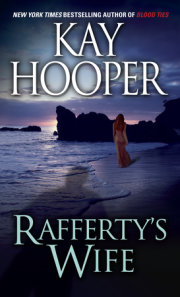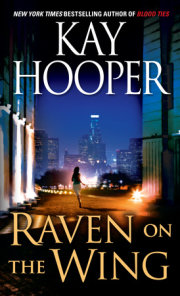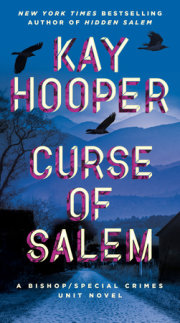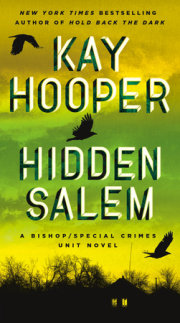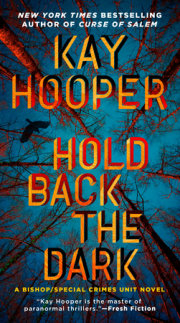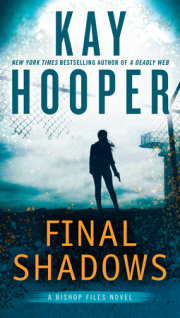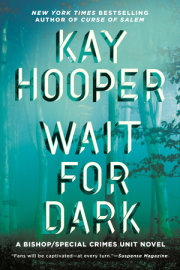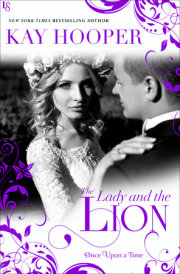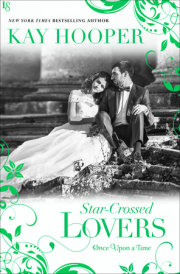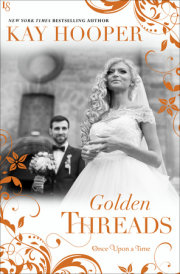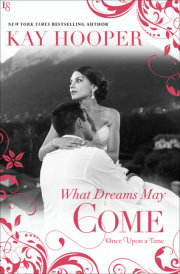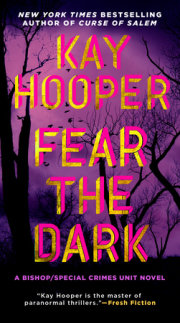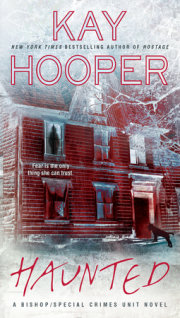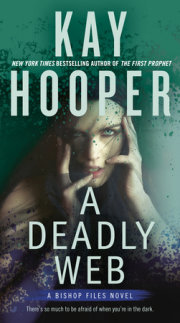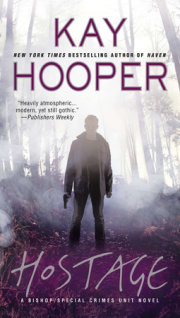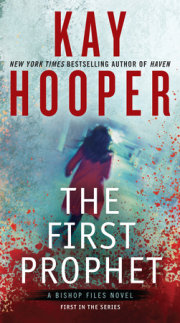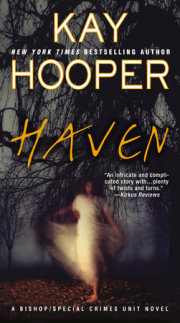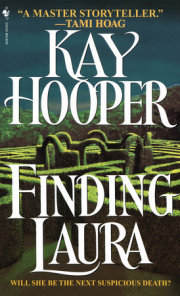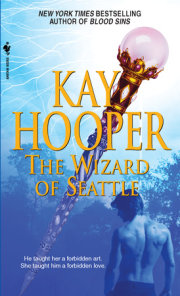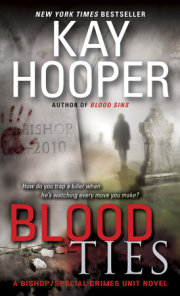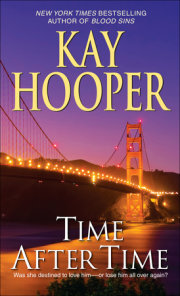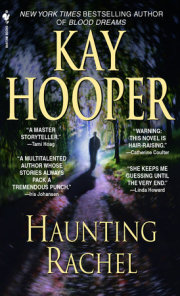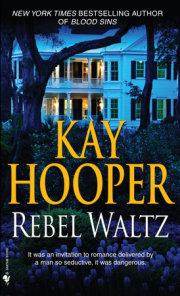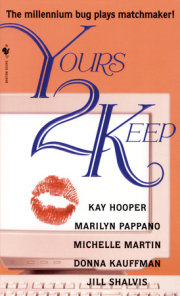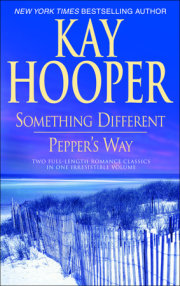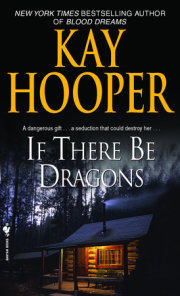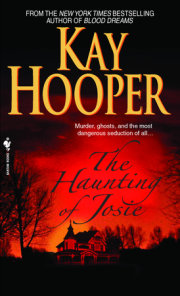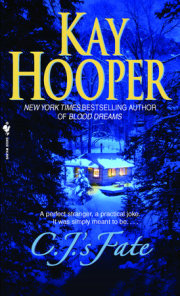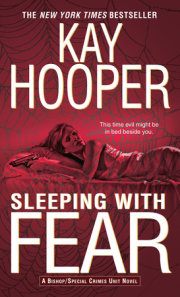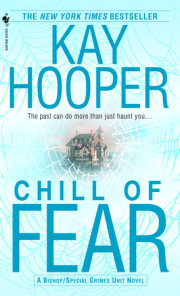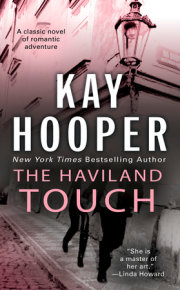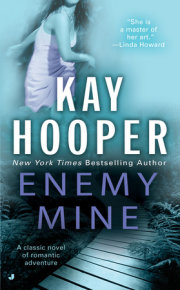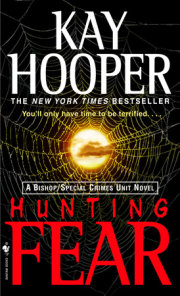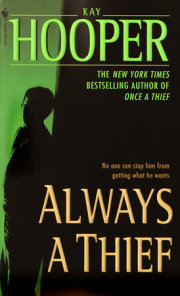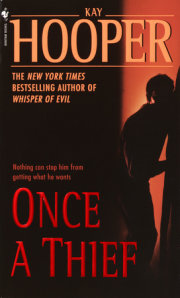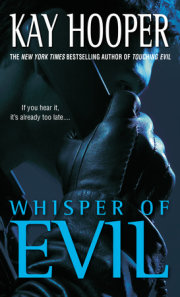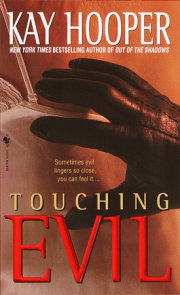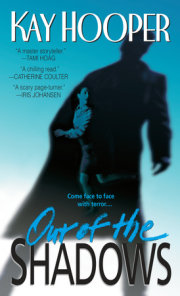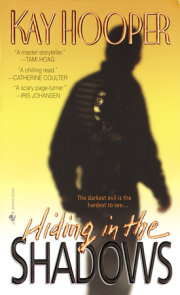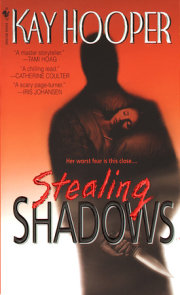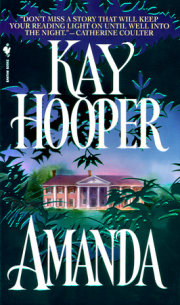One
“Move it or lose it, buddy!”
If Kelsey had obeyed his common sense, he would have moved it. However, as the command woke him up quite abruptly from a sound, exhausted sleep, and as he was feeling a bit irascible because of it, he chose to force the issue. So, in his best Bogart imitation, he growled, “Scram!”
The wisdom of that response was instantly in doubt when he felt the cold hardness of a gun barrel against his neck.
In a matter-of-fact voice that was musical and yet held all the softness of an angry drill sergeant’s, the woman said, “Any last words? A cigarette and a blindfold, maybe?”
Sitting very still, Kelsey chose to respond to the steely voice rather than the flippant words. “Uh— can we back up a little? I don’t know who you are, but—”
“That makes us even, doesn’t it? All I know is that this piece of junk is parked on my land and you’re in it. I get jumpy when strangers park on my land.”
Kelsey wanted badly to turn his head and look at the woman, but didn’t dare. “Look, I’m harm- less,” he insisted in his most bland and unthreatening voice. “I drove all night and I was tired, so I just pulled off the road to sleep. I didn’t know this was private land.”
“Now you do. Move it out.”
“Did anybody ever tell you that you have a wonderfully light conversational touch?”
“I said beat it!”
She had her hand through the window in back, he realized, so opening his door suddenly wouldn’t throw off her balance. Then he caught a sudden glimpse of her hand in the rearview mirror, and he almost laughed. Instead, he reached over his shoulder abruptly and took her “gun” away from her. It was an empty soft drink bottle, and he stared at it in disgust.
Of all the childish tricks to be taken in by! Muttering to himself, Kelsey tossed the bottle
through the window, then opened his door and got out of the car. He fully intended to pour his wrath all over her, but when he turned and got his first look at his attacker, wrath was the last thing on his mind.
She stood confronting him, stiff and angry, magnificent green eyes blazing with temper. Her incredibly pale silver hair was piled atop her head in what he vaguely recognized as a chignon, with tendrils escaping to frame her face. And Kelsey had never seen such a stunningly beautiful woman in all his life.
No one—man or woman—would ever call her merely “pretty.” She had the rarest kind of beauty, the beauty of bone structure and coloring that would remain with her all the days of her life. Her eyes were large and almond-shaped, fringed with long dark lashes, and their color was so vivid a green, they were almost iridescent. Her every feature was finely sculpted, and each blended so that her face was quite simply perfect.
“Close your mouth!” she snapped.
He did, then opened it again to laugh. “Damn, but you’re lovely!” he said. And he was intrigued to note that not even a scowl could make her face less than beautiful.
She put her hands on her hips, continuing to glare. “Am I going to have to call the cops to get you off my land?” she demanded.
Kelsey was trying to ignore the effect she was having on his senses, which was rather like trying to ignore a tornado while standing just under the funnel. “Um, you just might,” he confessed, feel- ing somewhat dazed. And in the back of his mind, behind all the rational, logical reasons why he just couldn’t, not now, a little voice was groaning, Oh,
hell, what lousy timing!
She blinked, and humor shone briefly in her eyes before temper rose up again. She turned her head and whistled sharply between her teeth.
Her teeth were lovely too, he noticed. And the jeans and T-shirt she wore did absolutely nothing to hide the fact that nature had been as wonder- fully generous below her neck as above. Kelsey decided he was dreaming. He decided he didn’t want to wake up. Then he became aware that something was growling near his left hip, and he tore his gaze from her to look down.
He woke up. In a hurry.
It was disguised as a dog, but from the sound it was making, Kelsey deduced that it was either a grizzly bear or a Tasmanian devil. Its fangs looked perfectly capable of devouring a whole steer, a redwood tree trunk, or Kelsey’s leg—which was what was closest at the moment.
Careful to keep his voice mild, Kelsey asked, “What the hell is that?”
“My dog. His name is Lobo. That means wolf. Lobo doesn’t like strangers either. Now, unless you can show me a badge—state or federal—and a warrant, along with a gun big enough to frighten
Lobo, you’d better clear out.”
“Right.” He edged carefully back into his car and shut the door with absolute quiet, but then hesitated. Looking at the face he knew he’d never forget if he lived to be a hundred, he said quietly, “At least tell me your name.”
She stood with one hand on the bristling ruff of her dog and stared at him for a long moment. “Elizabeth Conner,” she said, and seemed surprised that she’d said it.
“Thank you. My name’s Kelsey,” he told her, and then started his car and drove away.
The town was named Pinnacle, and it had never lived up to its christening. A sleepy little village with a city limit that was about a mile long and half as wide, it was tucked away in the country- side like a trail forgotten by time. The nearest interstate highway was ten miles away, the nearest city of any size a hundred, and if it was on any state map, it boasted only a pinprick with which to mark its location.
But as Kelsey drove his battered Ford slowly through two caution lights on Main Street, he de- cided that Pinnacle had, somewhere, an ace up its sleeve. He had spent nearly two hours driving all around Pinnacle before venturing in, and from that had concluded that the town would be a stagnating, dying one.
There appeared to be few income-producing resources in the rural county. Scant acres of usable, productive farmland, no river or stream of any size, nothing to attract tourists, one lone industrial plant called Meditron operating about five miles from town, and if a company or private individual was cutting timber, it was well-hidden.
So Kelsey had expected a dying town, one being slowly choked to death by its own limitations. He expected to see few young people, no new businesses or construction, and signs of decay every- where.
He was wrong on all counts.
The downtown area boasted several establishments of considerable size, all in excellent repair and, judging by traffic along the busy sidewalks on a weekday, flourishing nicely. At a rough estimate the population on the streets today had a median age of thirty and an income way above average, leaving folks with a lot of money to spend on themselves. Most of the cars on the picturesque street were late models, and there wasn’t a weed, a broken-down building, or crooked street sign anywhere to be seen.
“Damn,” Kelsey murmured. He continued down the main street and out of the downtown area, looking left and right to study some fine old homes and tasteful new ones, a compact little shopping center doing brisk business, an obviously new high school, and other signs of a healthy economy.
A county sheriff’s patrol car cruised past in the other lane, and Kelsey looked in the rearview mirror and watched as it pulled into a parking lot, backed out again, and fell in behind his own car. “Double damn,” he muttered. It could have been coincidental, of course, but he doubted it. Kelsey didn’t have a great deal of faith in coincidence. And he remembered, then, that Elizabeth Conner had ordered him off her land unless he could produce a badge—“state or federal.” So, didn’t the beautiful, bristly lady trust the local police? Now, that was interesting.
That was interesting as hell.
Kelsey found a small, neat motel about two miles from the city limits and pulled in there, nearly rammed head-on by a flashy sports car that was exiting at the same moment. Hanging his head out the window, he roared a few choice expletives, saw a faintly apologetic salute from the other driver, and parked his car with half his attention on that task and half on the patrol car that had departed, siren wailing, after the sports car.
He grinned a little, then got out of his car and went to acquire a room for himself. The result was a room, no more and no less; it was neat and clean and impersonal, and he barely glanced at the bland colors and sturdy furniture before dumping his bag and busying himself in showering and shaving.
He hardly looked at the face in the steamed mirror while he shaved automatically, but thought instead about everything he had seen and the conclusions he had reached. And he told himself that Elizabeth Conner figured prominently in those thoughts only because she looked like a good place to start. That was all, of course.
Sure it was.
Kelsey changed into clean clothes, faintly amused at himself for even thinking to check the shine of his shoes before leaving his room. He re- turned to his car, chose a less public road to leave the small town, and made only one stop before finding his way back to the place he had parked for sleep that morning. He took the precaution of parking his car out of sight behind a thicket of brambles, then moved cautiously up the dirt road, which led to a sprawling farmhouse in the distance. He was automatically taking stock as he went, noting that all the acreage on one side of the dirt drive was given over to a flourishing orchard; peaches, he guessed uncertainly, since he wasn’t familiar with the spring blossoms covering the short, gnarled trees planted in neat rows. On the other side of the drive was pastureland surrounded by a barbed wire fence; there was an elusively bare look to that land, as if little time or money had been spent in cultivating the thick stand of grass there. From that evidence, he concluded the pasture was not a money-making proposition, but merely used for the three or four horses he could see in the distance near a tumble- down barn.
Kelsey was still a good hundred yards away from the sprawling white house when he was con- fronted by the growling, clearly hostile Tasmanian devil disguised as a dog. Promptly, he sat down in the middle of the dusty drive, reached into the paper bag he carried, produced a large soup bone, and began talking to Lobo.
“Yes, but who was he?”
Elizabeth brushed a strand of silvery hair from her hot brow and frowned at her younger sister. “I didn’t ask, Ami. Just some man who pulled off the road to sleep. Now, would you please stop waving that knife around and use it on the potatoes?”
Ami, who at fourteen was coping with the physical uproar of adolescent hormones and who was glumly convinced she was the ugliest creature since the proverbial duckling, looked at the older sister who had virtually raised her and felt de- pressed. Not that any woman, she thought vaguely, wouldn’t be depressed when she looked at Beth.
Wielding her knife efficiently, Ami sent sidelong glances at her beautiful sister and thought disjointedly that Beth shouldn’t be stuck way out here in the middle of nowhere. She should be a model, or actress . . . or . . . or a queen. There should be a gallant prince for her, one who wouldn’t mind baby sisters with a lot of growing left to do before they could leave the nest. A prince with broad shoulders and a laugh in his eyes, one who could carry Beth’s burdens and take away that awful strained look in her eyes.
A prince who would punch Blaine Mallory in the nose.
“Ami.”
“Hmmm?” Dwelling on the lovely vision, Ami blinked and saw her sister holding up a potato denuded of much more than its skin. “Oh, I’m sorry, Beth, I just—”
“I know.” Elizabeth smoothed her sister’s long pale hair and smiled a little. “Daydreaming. But could you keep your mind on this until we get supper finished, sweetie?”
“Okay.” Ami was intensely grateful that Beth never made fun of her daydreaming, or her constant bouts with awkwardness as she tried to ad- just to the added inches that had come upon her with startling suddenness. And Beth never got mad at her for blurting out whatever popped into her head, like when she had asked Blaine Mallory why he smiled with his teeth but never his eyes.
If she had to have a gorgeous sister, at least she was glad it was Beth. Now, Meg, on the other hand—
“I see the chickens are going to get a lot more potato than skin again, half-pint. Where does your mind go?”
Ami bristled instantly. “It was your turn to do this, Meg, but you had to parade those shorts of yours in town hoping Jeff Mallory would see!”
“That’s enough,” Elizabeth said mildly before Meg could voice the retort hovering hotly on her lips. “Here, Meg, take this and set the table, please.” She handed her younger sister a handful of silverware, meeting the mutinous blue-green eyes steadily until Meg turned away with a flounce.
Under her breath, Ami muttered, “The whole town’s talking about her, Beth.”
Elizabeth sent her a small smile, but said nothing. Still, Ami could see the increased worry in her sister’s eyes when they rested on Meg, and it infuriated her. What was wrong with Meg, adding to Beth’s troubles like she did? She seemed hellbent to prove she was as beautiful as her sister, and it just wouldn’t happen. Not that Meg wasn’t pretty, Ami decided with reluctant fairness. She was. She had the pale hair of all the sisters, and her blue-green eyes would be lovely if only they weren’t so sulky, and her face was delicate. Her figure was good too, except that she insisted on dressing it scantily in shorts, tops, and jeans that were indecently tight.
She was sixteen, and certainly old enough to know how dangerous her games were. She flitted from one boy to another, reckless, dissatisfied with them after a short while. She wore too much makeup and swore too much, and she both drank and smoked when she was out of Beth’s sight. She thought Beth didn’t know. Idiot, Ami decided irritably. Of course Beth knew.
“Are the potatoes ready, sweetie?”
Ami handed over the peeled and sliced vegetables, and she felt absolutely wild for a moment. They were increasingly common, these violent emotions; she often burst into tears when some- thing upset her, astonished by her own lack of control. It would get better in time, Beth had told her gently. When her mind and emotions caught up with her maturing body, it would get better.
But for now, she made an incoherent sound and then said intensely, “I have to go outside, Beth! I can’t stand it when Meg acts like this! I just can’t!” “All right, honey.” Beth smiled at her, under- standing. “But don’t go far. Supper in half an
hour.”
Ami nodded, rushing out the back door as if some demon pursued her, and managing to make it around the corner of the house before she burst into tears. She swiped at the wetness angrily as she stalked toward the driveway, feeling so frustrated and worried that she didn’t know where to turn. She couldn’t tell Beth about part of it, be- cause her sister would only worry more if she knew that Ami had overheard a few conversations she shouldn’t have and had guessed what was going on; Beth, as always, was trying to shield her younger sisters, and had accepted the burden onto her own shoulders.
And it just wasn’t right, dammit! “Hello.”
Ami nearly jumped out of her skin. She looked up—a long way up—and felt her breath catch on a last sob. Heavens, but the man was big! He reminded her of a soldier she had seen once, large and powerful but with a way of moving and even a way of standing that made you forget he was huge. And he had a lean face that was smiling, a not really handsome face but oddly pleasant. His hair was a rusty shade of brown and his friendly eyes were a color somewhere between blue and gray. And even though Ami felt—knew—instantly that here was the prince she had hoped for, a shrewd part of her mind was wary.
Kelsey had seen the girl bolt around the corner of the house as if she were running from some- thing, and he had had a few moments to take stock as she approached him. Definitely a sister, he had decided; she was too old to be a daughter— fourteen or fifteen, he guessed. Her slender body showed hints of womanhood but was still ungainly in the transition of adolescence. Her long hair was pale and baby-fine, her thin little face filled with the sharp angles that promised later beauty in bone structure but presently made her features ill-matched; she would be as lovely as her sister, he knew, within a few years.
“Hello,” he offered, intentionally low-key and friendly. And he studied her as she stood staring at him. Haunting eyes, he thought, more blue than green and presently anxious beneath the surprise. She stood poised like a startled fawn, and he felt a curious and unaccustomed gentleness soften something deep inside him.
She was just a baby, a worried and anxious baby troubled by more than the chaos of her maturing self.
“I was here this morning,” he went on in the same low, pleasant tone, seeking to ease her wariness. “Your sister—must be your sister—ran me off. Elizabeth?”
“Yes.” Her voice was soft, curiously wondering. “Beth. I’m—I’m Ami.”
The instant he heard her voice, his eyes narrowed briefly, but his own voice remained friendly. “Hello, Ami.”
“Why did you come back?” she asked, not as if she didn’t know the reason, but as if she wanted confirmation of some private deduction.
Kelsey debated briefly, but found that no inner decision was necessary. Honestly, he said, “I wanted to see Elizabeth again. I think she’s worried about something, and I want to help her.”
Ami’s wide gaze dropped to bemusedly watch his fingers moving in the ruff of the big dog be- side him. “You made friends with Lobo? He’s al- ways hated men. He bit Blaine once,” she confided with an air that was half pleasure and half guilt.
“Blaine?” His interest quickened; it looked as though his Irish luck had come through yet again. Ami chewed her lower lip, her gaze returning to his face. Instead of responding to his question, she
asked one of her own. “Who are you?” “My name’s Kelsey, Ami.”
She didn’t appear to find the answer lacking. “Kelsey. I like that. Would you stay for supper, Kelsey?”
Laughter leapt to his eyes. “I’d love to. But don’t you think we should ask Elizabeth about that?”
There was a stirring gleam of amusement in her own eyes, as if she were hugely enjoying herself. “It’s my house too. You’ll be my guest, okay?”
“Okay.” He accepted the slender little hand that reached trustfully for his own, vaguely conscious that this was hardly something he had bar- gained for. This little fawn had seemingly adopted him with startling swiftness, and he couldn’t help but believe that her older sister was not going to like it. Still, it was incredibly lucky that he had stumbled into just the place he needed to be.
“Why were you crying, Ami?” he asked as they walked toward the house with Lobo pacing silently beside them.
“Because I’m a teenager,” she said baldly with a rueful shake of her head. “I cry over everything. But Beth says I’ll grow out of it. I just hope it’s soon.”
Both amused and sympathetic, he said, “It’s rough, isn’t it? You feel like yelling or crying, and your body doesn’t want to work right and nothing fits anymore.”
She looked up at him, grateful. “Yes! Just like that. And I suppose one has to go through it, but it’s terrible.”
He smiled down at her. “You live here with your parents?”
Ami shook her head. “Our parents were killed in a car crash ten years ago. I was just four, so I hardly remember them. Beth raised me—and Meg, who’s sixteen. I guess she raised Jo too; Jo’s twenty-three now and doesn’t live at home much anymore.” She frowned broodingly, her anxiety increasing. Then she shook off whatever disturbed her. “I’m glad Beth was old enough then to convince the judge we didn’t need anyone else, but she was only sixteen. It hasn’t been easy for her.” Ami looked up at him with faint entreaty. “So if she snaps at you—or acts all prickly like brambles—you’ll remember that, won’t you? That it hasn’t been easy for her?”
“I’ll remember, Ami,” he told her gently, and thought to himself that “Beth” had done a good job in raising this one. “So there are four of you?”
“Uh-huh.”
Something tugged at him. “Your names . . . there’s something familiar about them.”
“Little Women.” Ami grinned. “I doubt you read the book; most men won’t admit to it even if they did. But you probably saw one of the movies. We weren’t named in order, since Beth is older than Jo, but Mama loved that book. I think she changed the order because she was superstitious; Beth died in the story, you know.”
He remembered then. “Of course. I did see a movie.”
“We get teased sometimes,” Ami confided. She led him up onto a wide front porch and through the door into the house, allowing the dog to come in with them.
It was a comfortable house. Old enough to possess the rabbit warren of small rooms that had been common when it was built, it had clearly been remodeled within the past few years. The rooms were large and airy, with pale walls and shining wood floors dotted here and there with thick rugs. The color scheme was mostly pastels, cool blues, and greens, with occasional splashes of brighter colors. There was a great deal of quiet taste in the decorating, and Kelsey’s shrewd eyes saw also that whoever had done the house had been working with a limited budget and had done wonders with the place.
Then he was being led into a bright kitchen, and Kelsey found himself confronting the beautiful Elizabeth. She turned from a stove from which appetizing scents wafted, and froze the moment she saw him.
And Kelsey had a conflicting set of impressions and feelings. She was, he saw, even more beautiful than he remembered. Even obviously hot and a little tired, she was lovely. Strands of silver hair clung to her damp brow and throat, her iridescent green eyes were wide and angry, her magnificent body stiff. She didn’t want him here, didn’t want him here at all, he realized, and this was where he had to be. Where he suddenly wanted to be—and not for professional reasons.
As with Ami, he could see an underlying anxiety in her eyes, and there were hints of strain he hadn’t noticed before; at that first meeting, he’d been too overwhelmed by her to see much more than surface beauty. But now he saw. He saw the evidence of stress on her face, the faint shadows beneath her eyes and the look of utter control holding her features. He saw a mouth innately curved with humor but held in a tight line, saw from the fit of her jeans that she had lost weight recently.
He wanted to help her. Suddenly, more than he had ever wanted anything in his life, he wanted to help her.
“Hi,” he said lightly.
Before Elizabeth could utter a word, Ami said firmly, “This is Kelsey, Beth. You remember him from this morning. I’ve invited him to supper.”
After a moment, Elizabeth said, “Ami, Meg went up to her room. Could you go and tell her supper’s ready, please?”
Her younger sister hesitated, then nodded. And the glance she left Kelsey with was full of entreaty. Unconsciously, he braced himself and returned his gaze to Elizabeth.
“What do you want?” she asked tautly the moment Ami vanished.
All Kelsey’s instincts told him that this woman would not be put off with vague reasons. So he folded his arms across his chest, leaned back against the doorjamb, and met her eyes squarely. “I want to know,” he said quietly, “why you distrust the local police. I want to know what it is you’re worried stiff about.” He reflected for a moment, seeing her tension increase. “I want to know who Blaine is, and why Ami was happy that Lobo bit him.”
“Get out of here.”
As if he hadn’t heard, Kelsey went on. “I’ve come to a few conclusions on my own. I drove through Pinnacle today. I have a room there, by the way. And I was absolutely fascinated to see what should be a dying town flourishing. Obviously, it’s a company town, and obviously the company pays well. But it’s odd, Elizabeth Conner, because that company isn’t very well known.”
“I said—”
“Doesn’t look all that big either.” Seeming to ignore her interruption, he was watching her intently. “Meditron, a company listed as manufacturing medical equipment. Their books show a modest profit, nothing spectacular. I drove by there today. They have a surprising amount of security; it isn’t exactly usual for armed guards to man an entrance gate for such a small company— unless they’re doing something inside that they don’t want people to know about.”
“That has nothing to do with me,” she said tightly. “I don’t work at Meditron.”
“I know.” He ventured a small smile. “You raise peaches and sisters. I haven’t met the other two, but it’s obvious Ami is worried to death because you are worried. Now, since this is a tight-knit company town with the local law enforcement quite probably company-owned, I have to won- der.”
“Who are you?” she whispered.
After a moment, he shrugged. “If I told you who I worked for, it wouldn’t mean anything to you. We aren’t listed in the phone book and don’t offer guided tours of the home office. We’re—uh, troubleshooters, for want of a better word. We got a tip that something was rotten in Pinnacle. A call from a distraught young lady was recorded by the FBI—the Washington office, by the way. It seems she wasn’t even sure of the state boys, so she called the national office. She was too frightened to leave her name, and she was virtually in- coherent. But it was clear she was worried about something going on at Meditron. They were doing bad things out there, she said. And she said other things. That they were hurting people. Particular people.”
Elizabeth was frowning a little, wariness in her eyes.
“The matter was passed on to us,” Kelsey went on. “I got the job. Turning up on your doorstep was a piece of luck I hadn’t counted on.”
Her frown deepened. “I told you, I don’t—” “Ami made the call, Elizabeth.”
She went white. “That’s crazy! Ami is fourteen, and she never goes around Meditron. She wouldn’t know—”
“No,” Kelsey agreed softly. “She wouldn’t know, would she? Unless she had . . . overheard something? Unless she was convinced that your anxiety was tied up with Meditron. Unless she had realized what had happened to worry you so. Where’s your other sister, Elizabeth? Where’s Jo?” She was utterly still, dead white, and there was anguish in her eyes. Then it was gone, and she was in control again. “Get out of my house,” she
said flatly.
“Let me help you.” “Get out.”
Kelsey drew a deep breath and released it slowly. “And if I did leave? I’m still on this job, Elizabeth, I still have to find out what’s going on, whether you help me or not. It’s what I do. I stick my nose into things and I turn over rocks to see what crawls out from under them. I shake the cage un- til something rattles loose. And if your sister’s in that cage, she could get hurt.” He paused. “Of course, you could stop me. You could call Meditron—or Blaine Mallory; he runs the place, doesn’t he? You could call him and warn him about me.”
“Stop it,” she whispered.
He could see she was trembling suddenly, and it hurt him. Unconsciously, his voice deepened and gentled. “Don’t you see that I have to know how your sister is involved in this? I have to know, Elizabeth, so I can help her too. If you don’t tell me, I’ll have to find out for myself—and she could get hurt. I don’t want that.”
“I can’t tell you anything,” she said from between stiff lips. “Anything at all.”
“You’re too damned independent for your own good,” he said softly. “Too proud to ask for help. Or is it something else? Are they holding Jo some- where as a hostage, Elizabeth? Is that it? Have they threatened her if you don’t keep quiet?”
“Please leave.”
“You can’t go it alone, don’t you see? It’s obviously tearing you apart. And there’s Ami. She’s worried too. And maybe your other sister knows more than you think. If it’s blackmail, I can help; if they’re holding Jo, I can help.”
“You’re a stranger.” She spoke in the same soft, stiff voice.
“Yes. So you’ll have to decide to trust me, won’t you? Trust me, and let me help you.”
A door banged sharply at the front of the house. “Beth?” a deep masculine voice called briskly. Kelsey glanced over his shoulder, then quickly at Elizabeth.
“It’s Blaine,” she murmured, a riot of emotions in her eyes.
Taking two quick steps to stand before her, Kelsey reached to grasp her shoulders and draw her stiff body into his arms. “Trust me,” he whispered, and covered her startled lips with his own. He could feel her resistance at first in the tautness of her muscles, feel her hands come up to his chest as if she would have pushed him away. Her eyes were wide at first, panicked. But then he felt a shudder pass through her. Her dark lashes slowly veiled the iridescent green eyes, and the tension drained from her body.
And in the space of a heartbeat, Kelsey’s half-formed plan became less professional and much more personal. He stopped thinking about knocking Blaine Mallory off balance and flaunting his own presence innocently as a man interested in Elizabeth Conner. He stopped thinking about all the possibilities in this situation, the overtones and undercurrents of danger. He stopped thinking of why he was here. He stopped thinking.
Some distant part of him admitted silently that he had wanted to kiss her, and never mind professional needs.
She was warm and soft in his arms, her body melding bonelessly against his with no more than a slight pressure from his hand at the small of her back. Her mouth came alive in an instant, opening to him, her arms sliding slowly upward until her fingers lost themselves in his hair. And he pulled her suddenly even tighter against him, everything forgotten but the need to feel her body close to his.
Copyright © 2012 by Kay Hooper. All rights reserved. No part of this excerpt may be reproduced or reprinted without permission in writing from the publisher.

